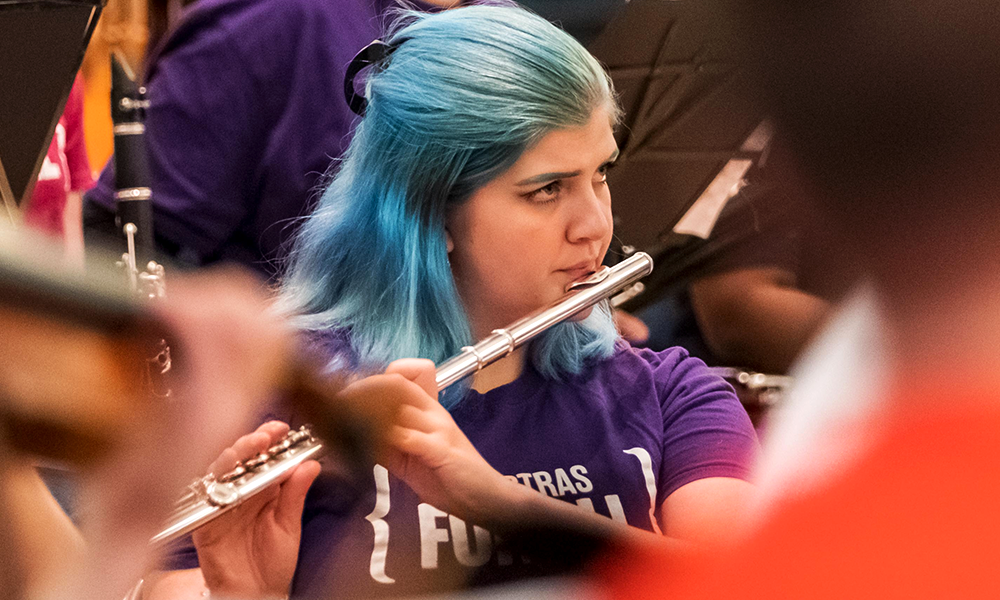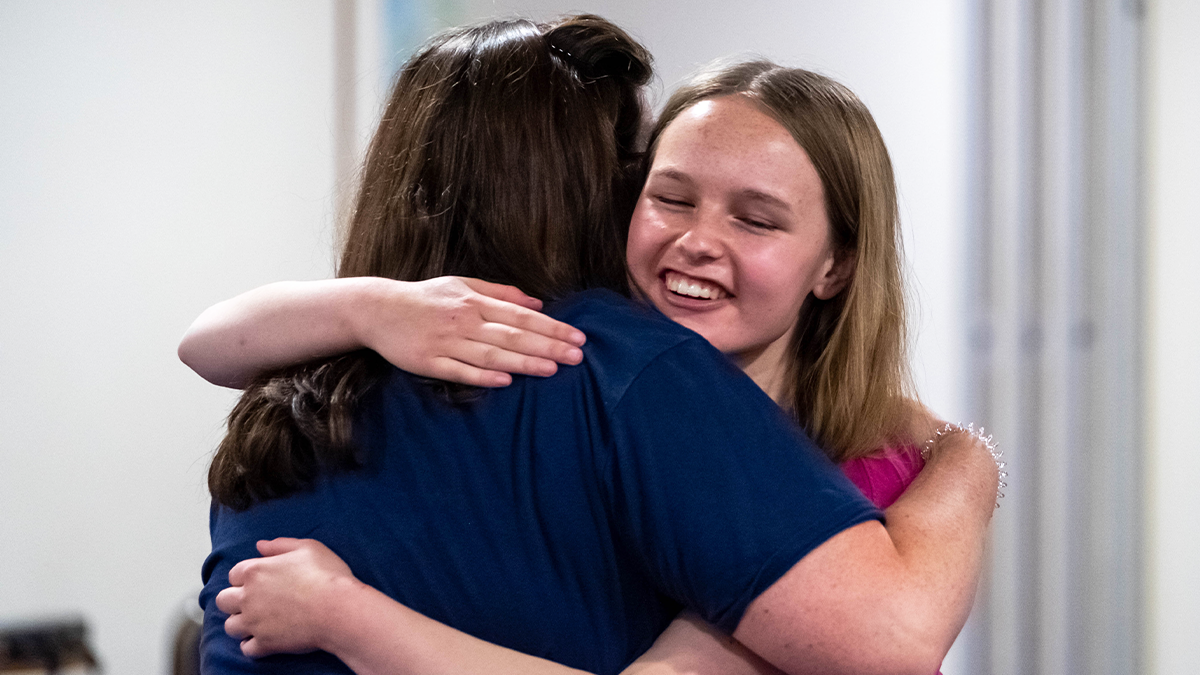The keen string player shares her thoughts as members of the public prepare to gather for a day of music-making at Musical Chairs 2022.
Orchestras for All’s winter fundraiser, Musical Chairs 2022, is just on the horizon – and our music-making family couldn’t be more excited to welcome this year’s diverse cohort of participants, who will be joining us from all across the country.
Taking place on Sunday 20 November 2022 at Westminster School, London, the inclusive event invites you – budding musicians and members of the public – to embark on a new challenge and experience what it feels like to perform with an orchestra for a day, regardless of your age, background or musical skill level.
What’s more, it’s all for a good cause – every single donation (whether that’s through sponsorship to participate or an individual donation to play) will be match funded by Harriet’s Trust, helping us to develop our three life-changing programmes that break down barriers to music-making for young people in the UK.
With our friendly team of NOFA members, alumni and orchestral tutors on hand to support you during rehearsals, it doesn’t matter whether you’re a seasoned professional or a complete beginner – everyone is welcome to play.
Megan Jowett, who will be supporting the violin and viola sections at Musical Chairs 2022, said: “I’ll be helping each section by playing alongside our participants as well as supporting them with bowing suggestions or ways of performing different sections of music – hopefully making it much easier for them!”
Pictured: Musical Chairs participants gather at Cecil Sharp House, London, for a day of group music-making
Megan continued: “For me, music – and Musical Chairs – is about the connections you make with other people. It’s enjoying the process of learning new skills, the different sounds you can make on your instrument and how you can express yourself, while exploring the stories of each piece of music.”
However, it’s not the first time the string player has performed live with a large-scale ensemble. Sharing a few of her career highlights so far, she explained: “I feel very lucky to have been involved in musical projects with some brilliant musicians – some of my favourites have been performing improvised music in Berlin, recording for TV and film and playing in some amazing concert halls all over the UK.
Watch this epic live concert starring NOFA at Nottingham’s Albert Hall >
“I love the work I do outside of performance as well, like leading creative workshops for children and their families as well as teaching students the violin and viola. A fun fact about me is that I started weaving and macramé during lockdown, so now my house is full of looms!”
Comedian and TV presenter, Sue Perkins, leads the way at Musical Chairs 2016
In true Orchestras for All style, repertoire at Musical Chairs 2022 will be specially arranged for a mixed-ability ensemble and includes ‘Spoitoresa’ – a sprightly Romanian folk song that was performed by National Orchestra for All at Nottingham’s Albert Hall in the summer.
With many participants often taking up the challenge of picking up a new musical instrument just weeks before the event – which includes performing live in concert to an intimate audience – it offers a refreshing alternative to the usual list of New Year’s Resolutions.
Megan said: “I’m really looking forward to meeting all the participants, hearing how everything comes together on the day and playing ‘Allegro’ from Alice Mary Smith’s Symphony in A minor. I’ve never played this piece before, so I’m excited to learn it!”






























































